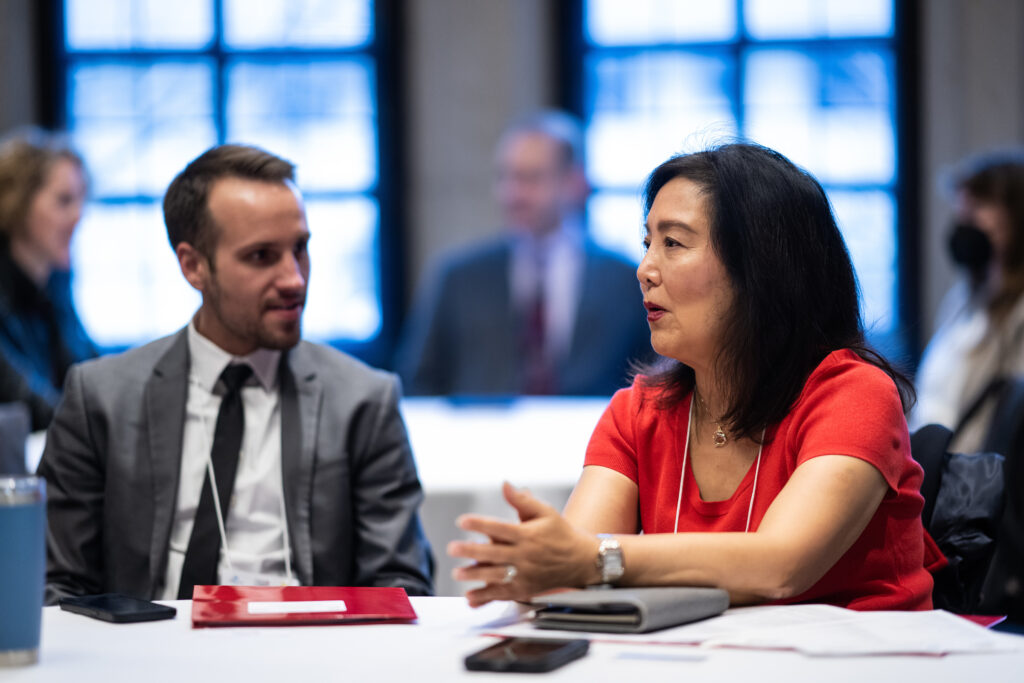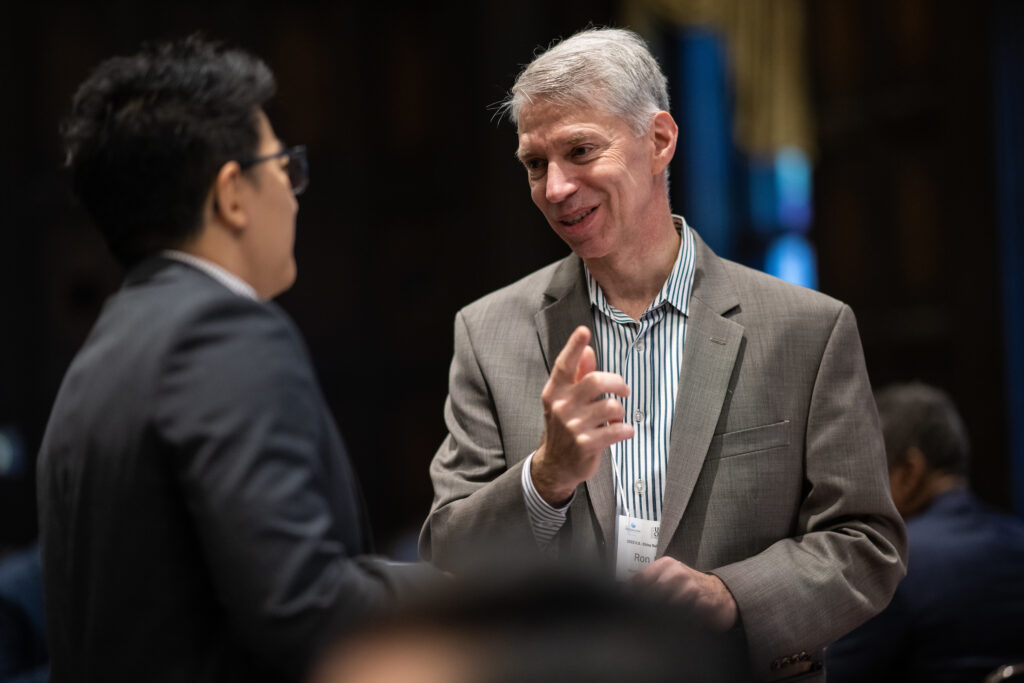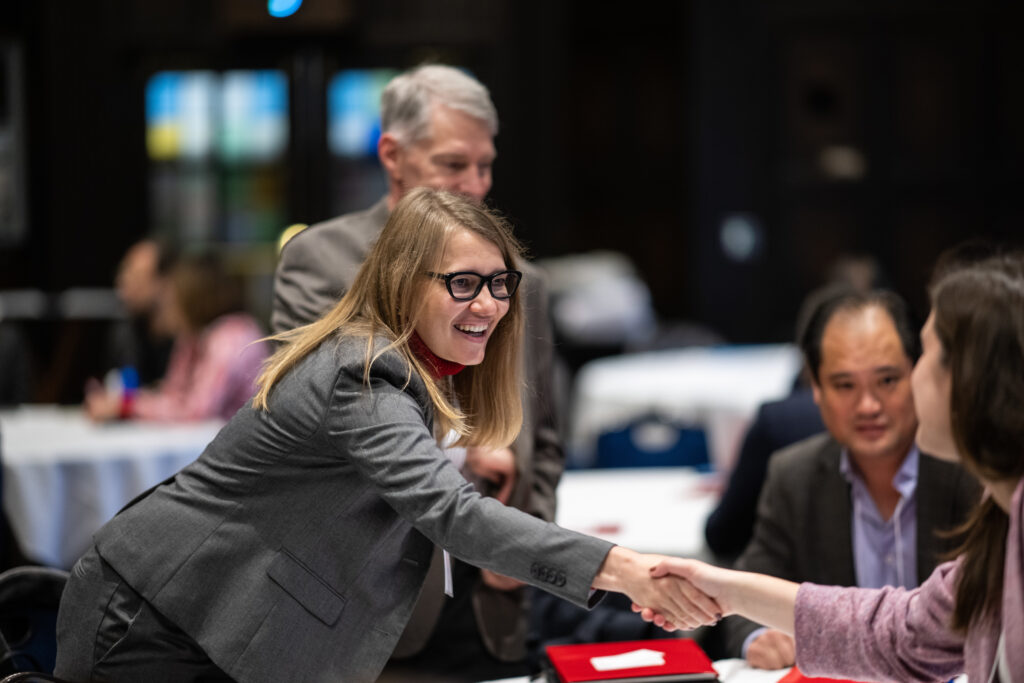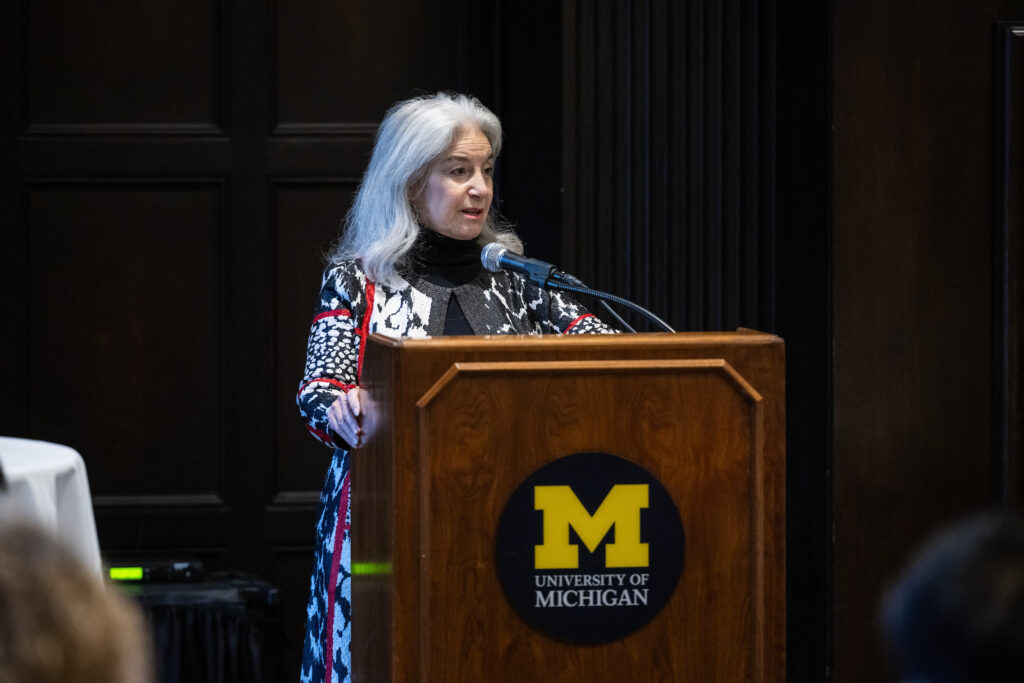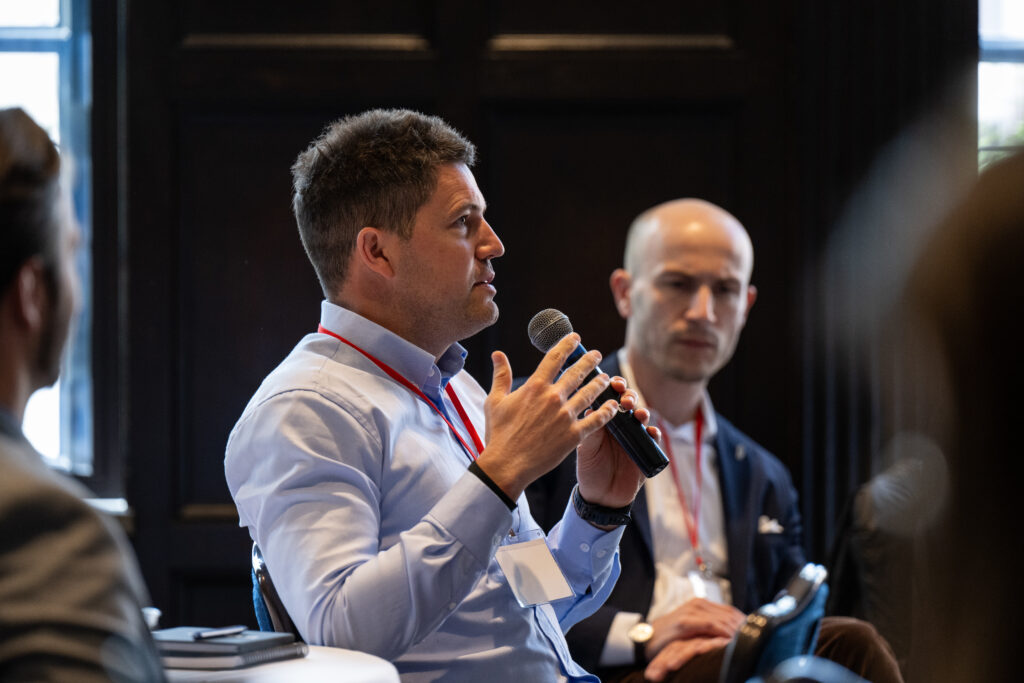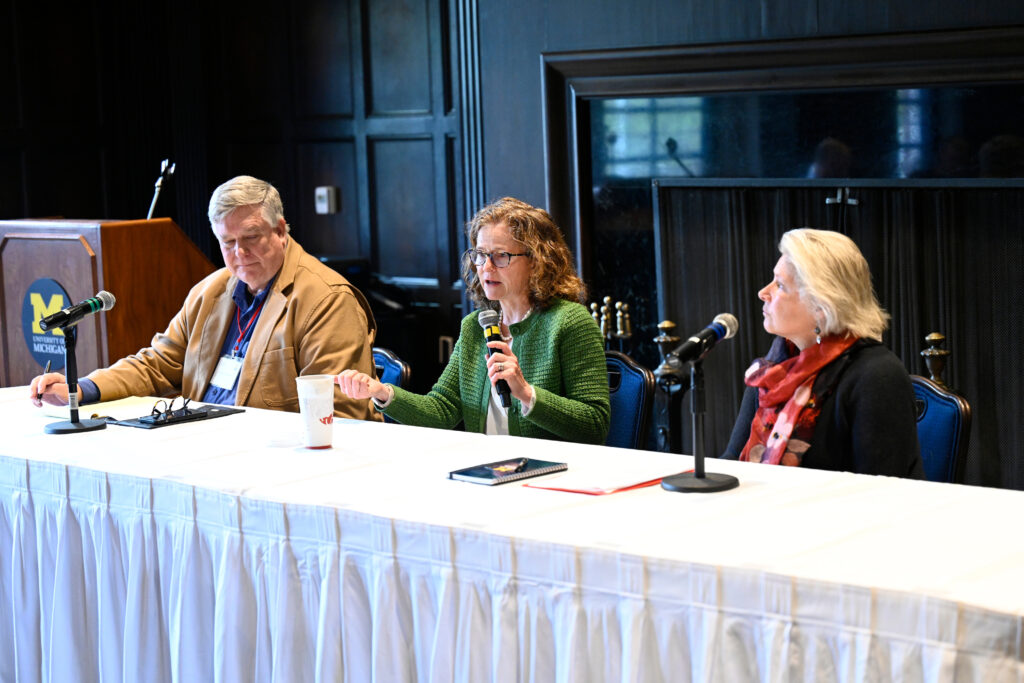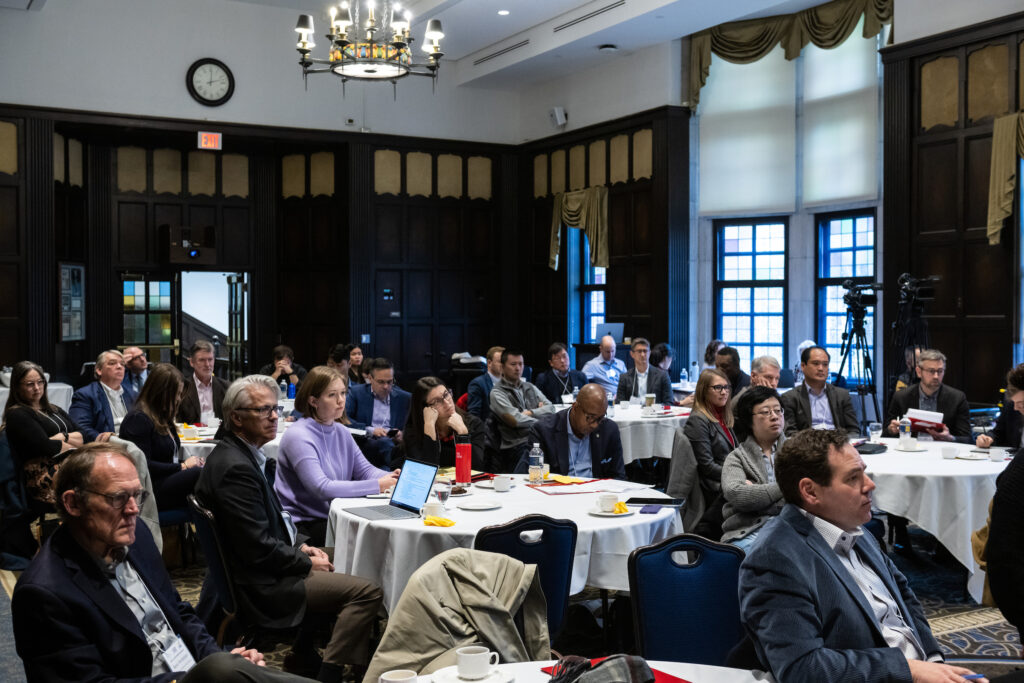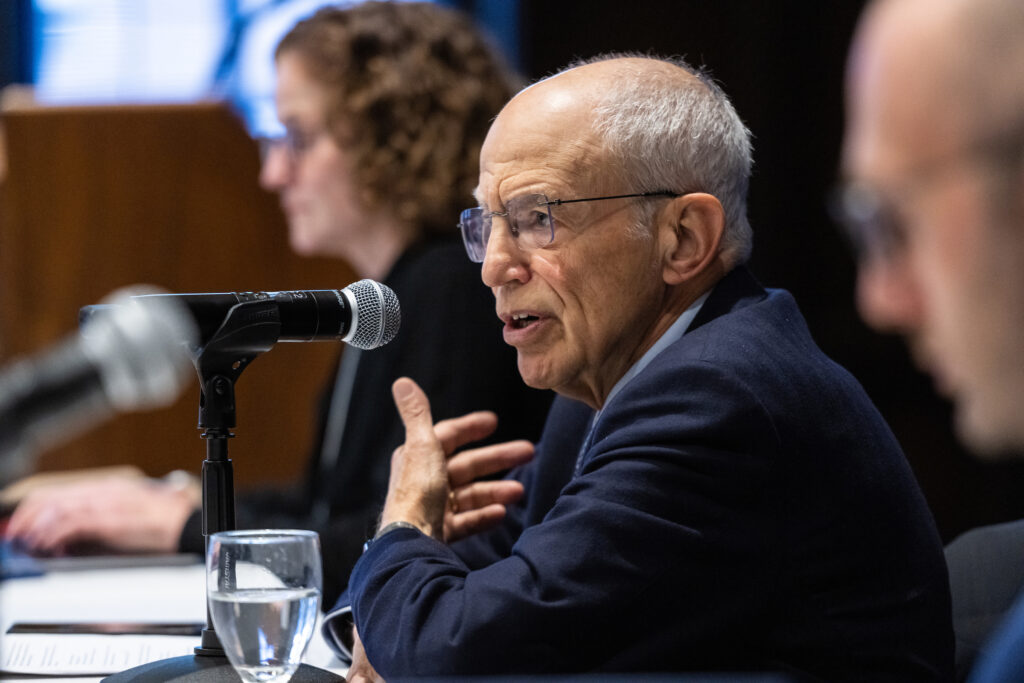The National Committee’s subnational initiatives bring together state and municipal-level officials from across the country who work on China-related issues in the areas of trade and investment, education, culture, agriculture, and development. During this time of heightened tensions in the bilateral relationship, these initiatives seek to educate, foster coordination, and develop best practices among participants.
Designed for U.S. state and municipal-level government officials who work on China, the Symposium connected representatives from more than 25 states with colleagues and China experts from across the country. Featured speakers included NCUSCR board directors Susan Thornton and Mary Gallagher, along with PIP fellows Kyle Jaros, Sara Newland, Ilaria Mazzocco, and Andrew Polk, among others
Officials who are interested in learning more about our next symposium or participating in these ongoing practicums can email us at subnational@ncuscr.org.
Researchers and scholars who are interested in joining these calls can email us at subnational@ncuscr.org.
Subnational Connect is a collection of regionally organized programming focusing on the aspects of the bilateral relationship that resonate most within that region, e.g., agriculture, trade, green energy, biotechnology, etc. At a time when subnational governments are increasingly involved in China affairs, we see Subnational Connect as an empowering opportunity, bringing various communities together to discuss issues of concern and interest and hear from China experts. We hope to equip subnational actors in ways that will allow them to better navigate an increasingly complex U.S.-China relationship, making well-informed decisions that reflect their and their constituents’ best interests.
Over the next two years, NCUSCR will arrange Subnational Connects in four different regions, beginning with the southeast in Spring 2025. As outlined below, each Subnational Connect will include several components taking place over the course of several days:
- General Public Program featuring a nationally recognized China expert in conversation with a prominent regional stakeholder, co-hosted with a respected local/regional organization with a large membership/network. (We are envisioning an administration official sitting down with a CEO, university president, trade association executive.)
- Business Leaders Roundtable with regional CEOs, heads of trade groups, and other interested stakeholders, moderated by NCUSCR president or board chair.
- Briefing for State/Local/Regional Officials, modeled on our Subnational Symposium but shortened to a half-day, will address important issues tailored to specific regional needs/interests.
- University Leadership and Student Engagement with (1) a student roundtable with outside U.S.-China experts and (2) a discussion between university leadership and China experts on developments shaping the U.S.-China higher-education landscape and engagement with Chinese universities/institutions.
- AAPI Community Roundtable on the impact that anti-China political rhetoric has had on the domestic U.S. climate, the future of U.S.-China research cooperation and security, the impact of the China Initiative, and the effect of anti-Asian racism on Chinese students in the United States and Chinese Americans.
These initiatives revive the National Committee’s pioneering work in the municipal and state/provincial governance arena, having been the first organization to conduct exchanges among American and Chinese mayors, governors, sister cities, urban and regional planners, city managers, and transportation specialists. These have included eight delegations of Chinese mayors, beginning with the 1978 Municipal Administrators Delegation – the first group of PRC mayors to visit the United States – as well as a 1990 group led by then Shanghai Mayor Zhu Rongji, and three American municipal leaders delegations going to China; four groups of Chinese governors coming here and two groups of American governors going there; and about twenty exchanges (going both ways) in the area urban planning and management. Additionally, the Committee hosted several delegations from individual provinces such as Henan, Hebei, and Jiangsu that came to the States on informational survey trips.
Photo Gallery
